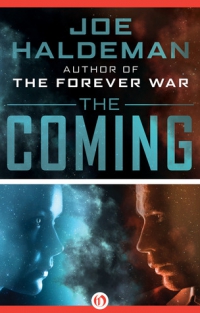Tzer Island does not usually review essays, nor does it usually publish reviews on Tuesdays. Having accepted the opporunity to read some essays published in the Vintage Short series, however, I've been reviewing them. Two essays were reviewed last week on Tuesday and Thursay. Thursday this week is Thanksgiving and Tzer Island is taking the day off. Two more essay reviews will appear next week. Vintage Shorts are available in digital format for about a buck.

Published by Vintage on October 4, 2016. The essay is taken from The Righteous Mind, published by Vintage on March 13, 2012
The title of Jonathan Haidt's essay answers itself. If obstructionists from all political stripes worked toward constructive solutions of common problems rather than refusing to betray their ideological purity (or, more cynically, refusing to cede political power by working together with people they view as political enemies), a good many of the nation’s ills would be cured. But how can that happen?
Increasing polarization in the electorate, says Haidt, is nothing compared to polarization in Washington. Beginning in 1990, traditions of friendship between Republicans and Democrats in Congress were discouraged by party leaders, weakening human connections and making it easy for party members to treat opposing party members as political enemies. Since the ability of Congress to solve problems depends on its operation as a collegial body, the “take no prisoners” mentality weakens Congress as an institution.
What is the source of “hyperpartisanship”? Haidt suggests that social class and self-interest are no longer strong predictors of ideology (i.e., the wealthy are not always conservative and the poor are not always liberal). He reviews research suggesting that there is a genetic basis for political ideology (conservatives are genetically predisposed to fear and respect for authority; liberals are genetically inclined to empathy and to new experiences).
So far, so good. Where Haidt goes off track, I think, is his failure to recognize that many of the arguments he makes against liberalism apply equally, or more strongly, to conservatism. He contends that the failure of progressives to consider how their proposed changes to society would weaken “moral capital” is “the fundamental blind spot of the left.” His suggestion that conservatives have more moral capital (resources that sustain a moral community) than liberals is unsupportable. Contrary to Haidt's suggestion, I suspect that most liberals do consider how their proposed changes will affect society, and that they don’t find many conservative “moral” causes (condemnation of gays, suppression of minority voting rights, imprisoning suspected terrorists without due process and then torturing them, advancing economic policies that concentrate wealth in the hands of a few, hostility toward government regulations that benefit workers and the environment, etc.) to be particularly moral. The notion that “conformity and loyalty” strengthen moral capital is true only if people are expected to conform and be loyal to moral behavior, which doesn’t include bashing anyone who isn’t a white Christian conservative straight male (or a submissive white Christian conservative female).
To be fair, Haidt suggests that conservatives, while allegedly doing a better job than liberals of preserving moral capital, “often fail to notice certain classes of victims, fail to limit the predations of certain powerful interests, and fail to see the need to change or update institutions as times change.” Yet those very failures are evidence that conservatives are preserving their own narrow self-interests, not moral capital.
Haidt suggests that liberals want too much change too quickly and thus squander moral capital. Maybe, but it seems more likely that diligent efforts to combat racism, sexism, religious intolerance, and political corruption actually build the moral capital that is needed to make enduring changes that benefit all Americans, not just the social conservatives. Yes, that pisses off the conservatives and encourages them to rally around their causes, but quietly enduring oppression changes nothing.
Haidt then talks about his agreement with certain fundamental tenets of liberalism (government restraint of corporate abuses and regulatory efforts that improve the quality of life), libertarianism (free markets work wonders), and conservatism (helping minorities hurts majorities). I’m paraphrasing the last one, but I think that’s what Haidt is really saying. He argues that enforced diversity weakens social bonds that make a society strong, but America’s diversity has always been its strength — not to mention that equality of rights is a fundamental American moral value. I don’t buy the premise that helping a “subset of bees” is likely to “damage the hive.”
I don't mean to suggest that all conservatives are small-minded social conservatives, but those are the voices that control politicians on the right side of the aisle. Conservative legislators must do their bidding, at least to some extent, if they want to be reelected. Karl Rove thought he had a master plan when he created a big tent to house social conservatives together with economic conservatives, but the social conservatives won't share the tent with conservatives who reject their narrow-minded view of the world. If the Rockefeller Republicans once again have a meaningful role in the party, compromise might replace hyperpartisanship, but that won't happen any time soon.
Near the end of the essay, Haidt gets around to the topic suggested by the title, but doesn’t offer much hope for constructive disagreement. If members of Congress lived in Washington instead of flying home every weekend, their kids might become friends and they might not view political opponents as enemies, but who’s going to make that happen? He urges people to open their hearts as a means to open their minds, but people who urge society’s return to the pre-Civil War era aren’t about to open their hearts to immigrants and blacks and gays and all the other people they evidently despise. Haidt’s essay is interesting, but I don’t see much in it that I would regard as constructive.
NOT RECOMMENDED
 Wednesday, November 23, 2016 at 9:13AM
Wednesday, November 23, 2016 at 9:13AM 


